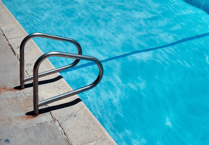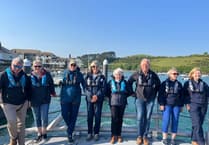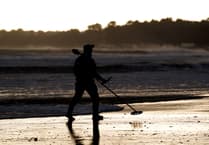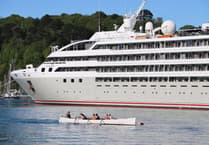That would mean 'catastrophe' for the shellfish process businesses and merchants who rely on shellfish industry in the area.
And it could mean a massive £28m a year financial blow to the local South Devon economy, affecting more than 1,000 jobs.
Fishermen have been dropping crab pots in Start Bay for more than 1,000 years.
But a Government quango is now looking at designating the whole area from Berry Head to Bolt Tail – including the Skerries Banks – as a new marine conservation zone, designed to give added protection to the marine ecology.
There is also a similar proposal to designate half the navigable length of the River Dart from the Anchor Stone at Dittisham to Totnes as a separate marine conservation zone.
As yet no one is sure just what restrictions will be imposed along with the new designations.
But South Devon and Channel Shellfishermen Ltd secretary Brian Pawley warned: 'The banning of netting would cause a problem, while the banning of potting would be a calamity as, were it to happen, virtually the entire Dartmouth and Salcombe crabbing fleet would be wiped out at a stroke.
'The knock-on effect to shellfish processors, merchants and anyone else who depend on the commercial fishing fleet for a livelihood, would be equally catastrophic.'
There are 16 crab fishing boats working out of Dartmouth and 20 working out of Salcombe. Between them they land around 2,000 tonnes of crab a year worth £2.8m alone and the value to the local industry dependent on those catches is likely to be 10 times that figure, revealed Mr Pawley.
He also explained that the fishing fleets employed around 150 directly and probably more than 1,000 by the time you take into account 'bait supply, processing, transport, cold storage, administrations etc'.
Leading Dartmouth fisherman Rick Mitchelmore said: 'We are going to meetings and watching very closely what is going on. We are very wary and keeping a close eye on this.'
The fisherman, who has four boats including a traditional 15m crab boat Excel working out of Dartmouth, added: 'It is how far they will go regarding protecting the seabed. They might start with mobile gear and scallop dredgers and then go on to say your crab pots could crush a starfish or rare seaweed.
'We just don't know how far they want to go.'
He said there had already been one attempt to turn prime crab and other fishing area around Lannacombe into a 'no catch' area but the fishermen had so far been able to fight that proposal off.
'We quashed that idea but that is not to say it won't come up again,' he warned.
Dart Harbour is also waiting to discover how tough restrictions on the Dart zone will be amid concerns that it could have an impact on moorings and even whether yachts will be permitted to drop an anchor in the river.
Dart Harbour chairman Neil Hockaday warned: 'They may restrict the anchoring of boats because it would damage eel grass and so forth and there is a possibility of that having an impact on the leisure industry.'
The introduction of marine conservation zones is a Natural England initiative and the South West proposals have been drawn up through a two-year consultation process called Finding Sanctuary.
Part of the proposals involve the designation of small areas within the zones as 'no take' areas where marine activities could be completely banned.
The aim is to make recommendations to the Government, although the introduction of the 127 zones nationally has recently been delayed following an announcement by the Government that it needs more evidence before taking any action – which has resulted in protests from the Devon Wildlife Trust.
Mr Pawley confirmed that the timetable for introducing the new zones had been put back another six months.
He said: 'Before ministerial approval will be granted there will be "an extended period of consultation with local stakeholders", though exactly how or by whom, this will be managed is still to be determined.'
He added: 'Potting for crustacea has been carried out in Start Bay for at least 1,000 years as there is reference to it in the Doomsday Book.
'But the industry now faces its greatest ever potential threat.'



